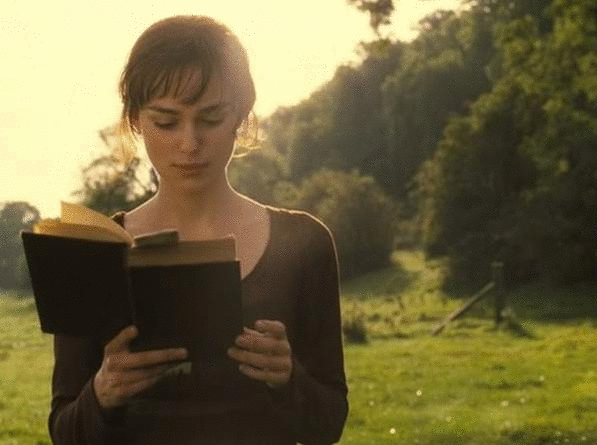Here we have some of the most interesting or famous quotes from Pride and Prejudice that you might find interesting:
“It is a truth universally acknowledged, that a single man in possession of a good fortune, must be in want of a wife” (Ch. 1, p.3, Ed. The Modern Library, Classics).
That is the famous opening sentence in Pride and Prejudice that summed up the role that women played in that century. The novel makes a mock out of the rapacious husband-searching in a village where there only seem to be daughters.
Female characters are shown like silly, vain, pride, self-important, not witty… opposite to Elizabeth character, for example Lydia is described as: “She had high animal spirits, and short of natural self-consequence, which the attentions of the officers , to whom her uncle`s good dinners and her own easy manners recommended her, had increased into assurance”. Maybe “animal” hint at her sexuality.
Other example of female weakness is shown when Mrs Bennet knows that Darcy and Elizabeth are engaged, before that she could not stand Darcy and after knowing the news she changes her mind and how handsome and charming the “disagreeable Mr Darcy” turned out to be. She exclaimed: “Such a charming man! So handsome! So tall! Oh, my dear Lizzy! Pray apologize for my having disliked him so much before. I hope he will overlook it” (Ch. 59, p.274, Ed. The Modern Library, Classics).
Moreover women are represented as very accomplished: “It is amazing to me,” said Bingley, “how young ladies can have patience to be so very accomplished as they all are”.
About Charlotte and marriage at that period:
“Marriage had always been her object; it was the only honourable provision for well-educated young women of small fortune, and however uncertain of giving happiness, must be their pleasantest preservative from want. This preservative she had now obtained; and at the age of twenty-seven, without having ever been handsome, she felt the good luck of it” (Ch. 22, p. 91, Ed. The Modern Library, Classics).
Lady Catherine de Bourgh, cannot accept the way in which new class boundaries have to be drawn. Darcy`s marriage to Elizabeth Bennet will result in a link between her family and Wickham, but it is Wickham´s origins as much as his bad character that makes her furious at his possibility. Lady Catherine de Bourgh says:
“I am no stranger to the particulars of your youngest sister´s infamous elopement…is such a girl to be my nephew´s sister? Is her husband, is the son of his late father´s steward, to be his brother? Heaven and earth-of what are you thinking? Are the shades of Pemberly to be thus polluted?” (Ch. 56, p.258, Ed. The Modern Library. Classics).
Appearances are really important for Pride and Prejudice, this is shown after Lydia elopement and Mrs Bennet is shown as:
“She was more alive to the disgrace, which her want of new clothes must reflect on her daughter´s nuptials, than to any sense of shame at her eloping and living with Wickham” (Ch. 50, p.223, Ed. The Modern Library. Classics).
These are more quotes from some of the characters:
1. “Happiness in marriage is entirely a matter of chance. If the dispositions of the parties are ever so well known to each other, or ever so similar before-hand, it does not advance their felicity in the least” (Charlotte Lucas)
2. “I have been meditating on the very great pleasure which a pair of fine eyes in the face of a pretty woman can bestow” (Darcy)
3. “But vanity, not love, has been my folly. Pleased with the preference of one, and offended by the neglect of the other, on the very beginning of our acquaintance, I have courted prepossession and ignorance, and driven reason away, where either were concerned. Till this moment, I never knew myself” (Elizabeth Bennet)
4. “The upstart pretensions of a young woman without family, connections, or fortune. Is this to be endured! But it must not, shall not be. If you were sensible of your own good, you would not wish to quit the sphere, in which you have been brought up” (Lady Catherine De Bourgh)
5. “Ten thousand a year! Oh, Lord! What will become of me! I shall go distracted!” (Mrs. Bennet)


